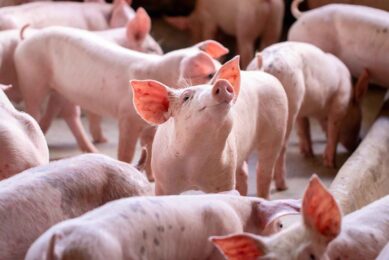Animal vaccines are focus of new CAST paper
The US’ Council for Agricultural Science and Technology (CAST) is releasing a new Issue Paper, Vaccine Development Using Recombinant DNA Technology, the 7th in CAST’s nine-part series ‘Animal Agriculture’s Future through Biotechnology’.
“Current public health threats posed by the potential spread of highly infectious disease agents between animals and humans, as well as the emergence of new diseases, impact animal agriculture significantly,” said task force chair Dr Mark Jackwood, at the Poultry Diagnostic and Research Centre, University of Georgia.
“Animal vaccinations are among the most effective, successful tools for dealing with these concerns.”
Potential to combat infectious agents
CAST’s press release states that research shows that the development of vaccination as a tool in fighting disease has resulted in the potential to combat almost all infectious agents affecting people and animals. In an effort to further the understanding and support of vaccine research and development, CAST is publishing this Issue Paper, written and reviewed by a seven-member Task Force, which addresses the following:
• A historical overview of vaccine development
• Three types of recombinant vaccines
• Development of vaccines for cattle, sheep, and goats; swine; poultry; fish; and companion animals
• Commercially available vaccines
• Recent advances in recombinant vaccines for the control of infectious diseases
• The future of vaccines for animal diseases
Crucial
“Controlling animal disease is crucial to animal agriculture as well as to human health,” notes CAST executive vice president John Bonner. “CAST is pleased to provide this important scientific assessment of the development and use of animal vaccines.”
Related websites:
• Council for Agricultural Science and Technology (CAST)
• University of Georgia
Click here to receive the latest Pig Progress free newsletter











